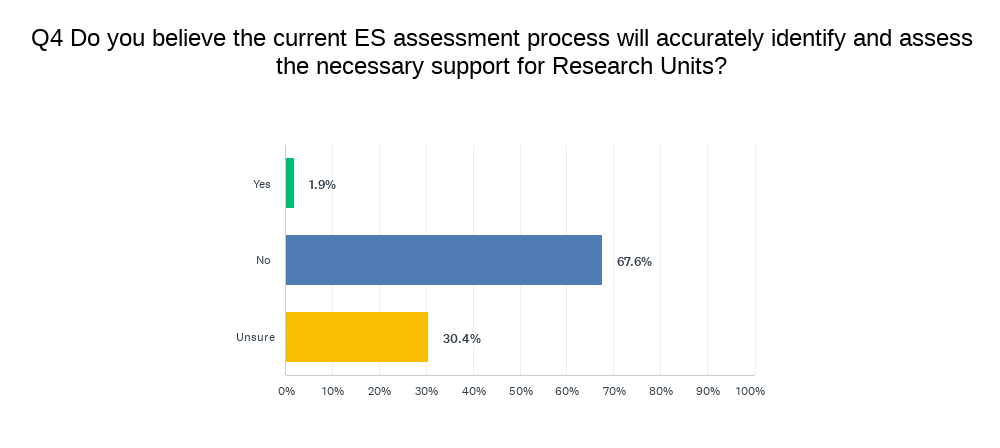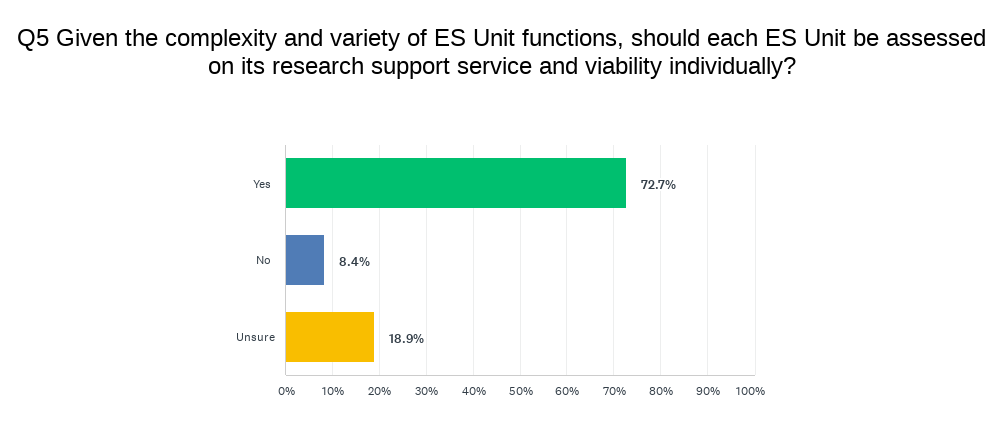
The results of a staff poll on Enterprise Services assessment processes have revealed very low confidence in the implementation of Executive’s controversial plan to slash many hundreds of support roles across the CSIRO.
At the same time, concerns are growing on the possible knock-on effect of the Enterprise Services (ES) job cuts on the workloads of both remaining support staff and CSIRO researchers.
CSIRO is on track to record the worst number of job cuts since 2014. These include confirmed cuts in Health and Biosecurity (43), Agriculture and Food (30), Manufacturing (5) and potentially several hundred (375-500) in Enterprise Services. More losses are expected at Data61 (up to 120) and there are strong rumours that there are significant numbers on the line in Environment (more than 65).
Over the first week of September 2024, Staff Association members were asked to participate in a poll seeking feedback on the ES Survey focus group process.
The exercise was prompted by concerns over the suitability of the focus group method, with reports suggesting a small number of participants were being asked to rapidly rank hundreds of ES functions, translating to less than one minute’s consideration per unit service.
More than five hundred and fifty (573) Staff Association members participated in the poll, close to ten per cent of the total CSIRO workforce.
Less than ten per cent (7.3%) of respondents claimed to have participated in the ES Survey focus group exercise, only slightly higher than the estimated three per cent of staff selected by Executive to participate in focus group assessments.
Hardly any respondents (6.5%) believe the low participation rate will provide enough quality data to inform an accurate judgement on ES functions critical to science delivery.

As a result, more than two thirds of participants (67.6%) believe the current ES assessment process will fail to accurately gauge necessary support levels for Research Units.
On a more positive note, the poll results reveal support for a change of course. Nearly three-quarters (72.7%) of respondents agreed that bespoke, individual assessments for ES units would represent a better, more accurate process.

Despite staff calling for an improved approach to ES unit assessment, CSIRO Executive continue to resist adopting a process that would deliver genuine assessments and meaningful consultation to ensure services critical to science delivery are prioritised.
Staff Association representatives will meet with CSIRO Executive early next week to present the poll results and advocate for a better approach.
However, an analysis of the commentary provided by poll participants points to growing concern of the impact of ES job cuts on the workloads of remaining support staff and researchers.
“As a frontline research scientist I am already taking on a significant workload of admin type tasks once done by ES capability. This cuts directly into my ability to do science,” one respondent said.
“These are tasks that I do not do regularly and therefore I’m nowhere near as efficient or effective as a dedicated, trained ES person.”
“CSIRO Executive need to be more transparent on how the current workload of the ES staff is going to be fulfilled with so many job losses and what areas will be most affected,” another participant commented.
“Will more ES-appropriate work be forced onto research scientists? That will just further decrease our ability to do science and achieve impact,” said another.
CSIRO employees who are Staff Association members and are potentially affected by job cuts are encouraged to contact the union to arrange support and individual representation.
